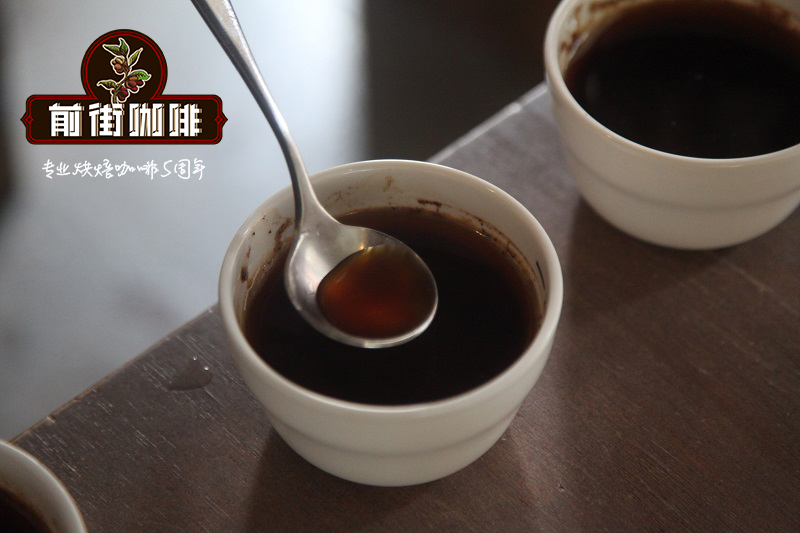Rwanda coffee how to drink Rwanda Arabica coffee beans? Characteristics of coffee beans in Rwanda

Professional coffee knowledge exchange More coffee bean information Please pay attention to coffee workshop (Weixin Official Accounts cafe_style)
Rwanda is a poor agricultural country where 90% of the working population is engaged in agriculture. It is the most densely populated country in Africa, surrounded by land, with few natural resources, underdeveloped industries, and mainly exports coffee and tea in exchange for foreign exchange. Because there is no perfect transportation network, the flowers and vegetables originally planned to be exported to other places are affected and cannot be exported. Although Rwanda has a fertile ecosystem, food production has not kept pace with population growth, necessitating internal food imports.
African coffee always gives the impression of wild and wild, but Rwandan coffee is so soft, strong and saturated. This is my first impression of Rwandan coffee, as far as Africa is concerned. Rwanda's coffee industry is indeed remarkable because the country thrives mainly on producing good coffee beans of high quality. The taste of Rwandan coffee has been described as "grassy" with tropical characteristics, and because Rwanda's unusually fertile soil and climate are so conducive to growth, the coffee trees here seem driven or forced to grow upward, as well as growing too fast to produce the best beans. But regardless, the soft, rich flavor of Rwandan coffee is excellent. Especially at the end of the drink, it presents a unique rich aroma of caramel and sweetness that makes people memorable.
Rwanda has always been blessed with good coffee growing conditions: high altitude, volcanic soil, abundant sunlight and cabernet sauvignon. Rwanda is also known as the "country of a thousand mountains" because many coffee trees are grown in the mountains between 1700 and 2000 meters above sea level. Rwandan coffee is a world-class treat, balanced in taste compared to Kenyan coffee and clear in place to rival Central American coffee. Generally Rwandan coffee has a fruity sweetness, floral aromas and a dark tea-like finish. Coffee production lines tend to operate in a country-dependent manner, whereas coffee in Rwanda is produced exclusively by smallholders rather than large-scale enterprises. Compared to farms in Brazil, even small ones amount to 20 hectares. Rwanda's 0.1-0.2 hectares are insignificant.
Here farmers pick coffee beans from coffee trees by hand, then send them to a processing station, where they are trampled by barefoot, singing farmers. These coffees are sweet, with clear lemon notes and subtle berry and chocolate flavors.
For these developing countries, coffee naturally became one of the main development directions of the country as demand for specialty coffee increased after it became popular, in order to continuously improve and gain recognition in the international market.
After the beans are separated from the fruit, the farmer sorts them individually with a rake and water, and then sunburns them. Because coffee beans are sensitive to moisture in the air, farmers rush to cover them with tarpaulin whenever a breeze blows.
Rwandan coffee flavor
Rwandan coffee tastes vary widely: cherries, raisins, limes, kungfu, cantaloupes, oranges, honey, candy, apricots, plums, etc.
In fact, the taste of these fruits is the certification of good growing conditions. According to the National Agricultural Export Development Board, there are currently about 400,000 small production units in Rwanda, and agricultural land is generally located at an altitude of 1,700- 2,000. Most of the country's coffee production comes from the west and south, but there are actually five regions where it is produced. In the southwest, Virunga in the volcanic region is dominant, and the famous Sliverback mountain is also here. To the west of the country there is Kivu district next to Lake Kivu. As for the central part of the country, there is the Kizi Rift district. Then go to the southern end of the map and you will find Akagera at a lower elevation, about 1300 degrees. Finally, to the east lies the Muhazi region.
Although the characteristics of the regions vary, generally speaking, the regions of Rwanda are of high elevation and volcanic soils with high nitrogen content. If you want to sing high-quality coffee, these conditions are naturally indispensable.
Front Street Recommended Rwandan Coffee Brewing Parameters:
V60/1:15/90℃/time 2 minutes
Qianjie Coffee: Guangzhou's baking shop, small store but a variety of beans, can find a variety of famous beans, but also provide online store services. https://shop104210103.taobao.com
Important Notice :
前街咖啡 FrontStreet Coffee has moved to new addredd:
FrontStreet Coffee Address: 315,Donghua East Road,GuangZhou
Tel:020 38364473
- Prev

What is the flavor of Rwandan coffee beans? How do you drink coffee from Rwanda? Varieties of Rwandan coffee beans
For more information on coffee beans, please follow Coffee Workshop (Wechat official account cafe_style) Rwanda Coffee, the most popular African coffee after Kenya and Ethiopia. But unlike the two famous producing countries, it does not have a long history of planting, let alone native varieties everywhere in the wild. This small African country is a fire Phoenix that has been reborn after robbery.
- Next

How to drink Rwandan coffee beans? What is the flavor of Rwandan coffee beans?
Professional coffee knowledge exchange more coffee bean information please follow the coffee workshop (Wechat official account cafe_style) Rwanda is located in the heart of the interior of Africa, its mountain terrain is fertile land, as well as ancient traditional bourbon species, indicating that the natural environment needed to grow quality coffee beans can be found everywhere in Rwanda. Coffee was introduced to Rwanda by German missionaries in 1904, 1930.
Related
- Detailed explanation of Jadeite planting Land in Panamanian Jadeite Manor introduction to the grading system of Jadeite competitive bidding, Red bid, Green bid and Rose Summer
- Story of Coffee planting in Brenka region of Costa Rica Stonehenge Manor anaerobic heavy honey treatment of flavor mouth
- What's on the barrel of Blue Mountain Coffee beans?
- Can American coffee also pull flowers? How to use hot American style to pull out a good-looking pattern?
- Can you make a cold extract with coffee beans? What is the right proportion for cold-extracted coffee formula?
- Indonesian PWN Gold Mandrine Coffee Origin Features Flavor How to Chong? Mandolin coffee is American.
- A brief introduction to the flavor characteristics of Brazilian yellow bourbon coffee beans
- What is the effect of different water quality on the flavor of cold-extracted coffee? What kind of water is best for brewing coffee?
- Why do you think of Rose Summer whenever you mention Panamanian coffee?
- Introduction to the characteristics of authentic blue mountain coffee bean producing areas? What is the CIB Coffee Authority in Jamaica?

